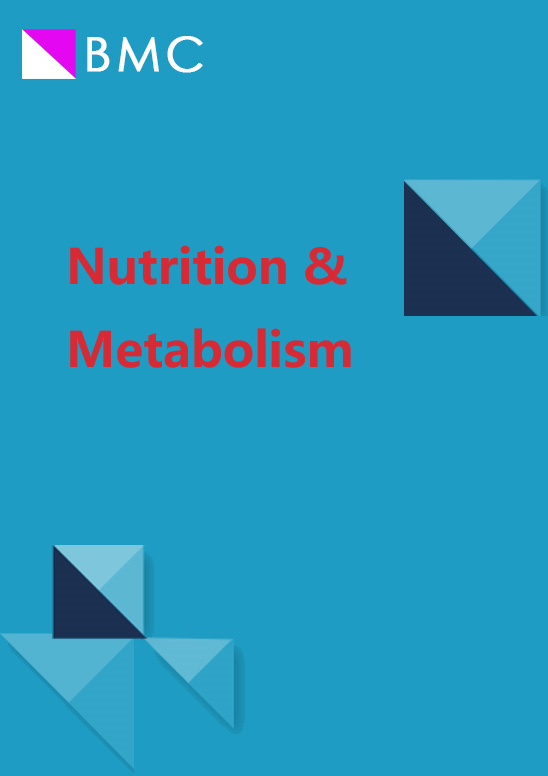Adherence to the Eatwell Guide and cardiometabolic, cognitive and neuroimaging parameters: an analysis from the PREVENT dementia study
IF 3.9
2区 医学
Q2 NUTRITION & DIETETICS
引用次数: 0
Abstract
The Eatwell guide reflects the UK government's recommendations for a healthy and balanced diet. Previous research has identified associations between healthy eating patterns and both cardiovascular and brain health, although there is little evidence specifically focusing on the Eatwell Guide. To date no research has investigated associations between the Eatwell Guide and risk for future dementia. Data from the PREVENT dementia cohort study baseline visit was used in this analysis. Binary and graded Eatwell Guide scores (BEWG, GEWG) were created from a self-reported Food Frequency Questionnaire. The CAIDE score was included as the primary outcome measure to represent risk for future Alzheimer’s disease. Secondary outcome measures included cardiometabolic health measures and brain health measures. Generalised additive models were run in R. A total of 517 participants were included in the analysis, with a mean BEWG score of 4.39 (± 1.66) (out of a possible 12 points) and GEWG score of 39.88 (± 6.19) (out of a possible 60 points). There was no significant association between either Eatwell Guide score and the CAIDE score (BEWG β: 0.07, 95% confidence interval (CI): -0.07, 0.22; GEWG β: 0.02, 95% CI: -0.02, 0.06) or any measures of brain health. There was a significant association between higher GEWG score and lower systolic and diastolic blood pressure and body mass index (BMI) (systolic β: -0.24, 95% CI: -0.45, -0.03; diastolic β: -0.16, 95% CI: -0.29, -0.03; BMI β: -0.09, 95% CI: -0.16, -0.01). Although not directly associated with the CAIDE score, the Eatwell Guide dietary pattern may be beneficial for dementia prevention efforts through the modification of hypertension and obesity, which are both known risk factors for dementia. Future work could replicate these findings in other UK-based cohorts as well as further development of Eatwell Guide scoring methodologies.遵守《饮食指南》与心脏代谢、认知和神经影像学参数:PREVENT 痴呆症研究分析
健康饮食指南》反映了英国政府对健康均衡饮食的建议。以往的研究已经发现了健康饮食模式与心血管和大脑健康之间的关联,但专门针对《饮食健康指南》的证据却很少。迄今为止,还没有研究调查过《饮食健康指南》与未来痴呆症风险之间的关系。本分析采用了PREVENT痴呆症队列研究基线访问的数据。二进制和分级《饮食健康指南》得分(BEWG、GEWG)由自我报告的食物频率问卷得出。CAIDE 评分作为主要结果测量指标,代表未来罹患阿尔茨海默病的风险。次要结果测量包括心脏代谢健康测量和大脑健康测量。共有 517 人参与分析,平均 BEWG 得分为 4.39 (± 1.66)(满分为 12 分),GEWG 得分为 39.88 (± 6.19)(满分为 60 分)。饮食指南评分与 CAIDE 评分之间均无明显关联(BEWG β:0.07,95% 置信区间(CI):-0.07, 0.22;GEWG β:0.02,95% 置信区间:-0.02,0.06)或任何大脑健康指标。GEWG得分越高,收缩压和舒张压以及体重指数(BMI)就越低(收缩压 β:-0.24,95% CI:-0.45,-0.03;舒张压 β:-0.16,95% CI:-0.29,-0.03;BMI β:-0.09,95% CI:-0.16,-0.01)。尽管与CAIDE评分没有直接关系,但《饮食健康指南》中的饮食模式可能有利于通过改变高血压和肥胖来预防痴呆症,而高血压和肥胖都是痴呆症的已知风险因素。未来的工作可以在其他英国队列中复制这些发现,并进一步发展《饮食指南》的评分方法。
本文章由计算机程序翻译,如有差异,请以英文原文为准。
求助全文
约1分钟内获得全文
求助全文
来源期刊

Nutrition & Metabolism
医学-营养学
CiteScore
8.40
自引率
0.00%
发文量
78
审稿时长
4-8 weeks
期刊介绍:
Nutrition & Metabolism publishes studies with a clear focus on nutrition and metabolism with applications ranging from nutrition needs, exercise physiology, clinical and population studies, as well as the underlying mechanisms in these aspects.
The areas of interest for Nutrition & Metabolism encompass studies in molecular nutrition in the context of obesity, diabetes, lipedemias, metabolic syndrome and exercise physiology. Manuscripts related to molecular, cellular and human metabolism, nutrient sensing and nutrient–gene interactions are also in interest, as are submissions that have employed new and innovative strategies like metabolomics/lipidomics or other omic-based biomarkers to predict nutritional status and metabolic diseases.
Key areas we wish to encourage submissions from include:
-how diet and specific nutrients interact with genes, proteins or metabolites to influence metabolic phenotypes and disease outcomes;
-the role of epigenetic factors and the microbiome in the pathogenesis of metabolic diseases and their influence on metabolic responses to diet and food components;
-how diet and other environmental factors affect epigenetics and microbiota; the extent to which genetic and nongenetic factors modify personal metabolic responses to diet and food compositions and the mechanisms involved;
-how specific biologic networks and nutrient sensing mechanisms attribute to metabolic variability.
 求助内容:
求助内容: 应助结果提醒方式:
应助结果提醒方式:


